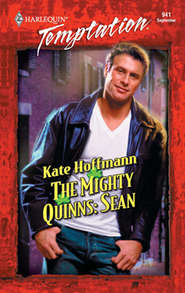По всем вопросам обращайтесь на: info@litportal.ru
(©) 2003-2025.
✖
Hot & Bothered
Автор
Год написания книги
2019
Настройки чтения
Размер шрифта
Высота строк
Поля
“Air-conditionin’ is not a new-fangled invention,” Eudora countered. “Some would argue it’s a necessity in the heat of a South Carolina summer. And we are approachin’ an age where personal comfort is all we can look forward to on a good day.”
“Let’s be honest, Dora. It isn’t our lack of a temperature-controlled environment that will spell the end of our beloved bridge club. It’s the shortage of decent gossip. There’s just nothin’ left to talk about in this backwater town!”
The Thursday Ladies’ Bridge and Luncheon Club was nearly a century old. Founded by Eulalie and Eudora’s grandmother and a group of her friends, members were all prominent socialites in the town of Belfort, South Carolina. The club was a Belfort institution that had weathered two World Wars, Prohibition, the Great Depression and an attempted seditious coup by several members who wanted to replace the bridge games with gin rummy. But through it all, the ladies had always shared lively conversation among the sixteen members. Eulalie might call it gossip, but Eudora preferred to think of it as…illuminating discourse.
“Maybe we should consider bringin’ in some new members,” Eudora suggested. “Some ladies who might have some interestin’ topics to share. I met a lovely widow at the Winn-Dixie who just moved from New York City.”
“The ladies would never tolerate a Yankee.” Eulalie shook her head. “Besides, we’ve always had sixteen members and until one of our ladies goes to her great reward, we can’t bring in a new member. It’s in our bylaws, and you should know our bylaws since you’ve served as president twice!”
“According to Charlotte Villiers, she herself is circlin’ the drain as we speak,” Eudora muttered. “If I have to listen to one more recitation of her medical woes, I do believe I might just get great-granddaddy’s dueling pistol from the gun cabinet and kill her myself.”
Eulalie chuckled, her mood lifting at her sister’s audacious remarks. Still, this was serious business. If the bridge club struggled under her watch as president, the ladies might find some way to put the blame on her. “It wouldn’t have to be anything major,” she murmured. “Just somethin’ juicy. Perhaps a nice political scandal would spice things up. Bribery, blackmail, corruption. Or even better, a scandal of the—” she lowered her voice to a whisper “—private kind, if you catch my meanin’. You know, I always believed Desmond Whitley was a homosexual. Maybe we could convince him that this would be a nice time to come out of the woodshed.”
“That’s closet, sister. Come out of the closet.”
“Closet, woodshed. Now that would be something worth talking about.”
“I like Desmond,” Eudora said. “And to tell the honest truth, I don’t much care if he is a homosexual. He does lovely flower arrangements for the fall bazaar at the church and he embroidered that tablecloth for the Friends of the Library auction. And he’s a very fine dancer.”
“All right,” Eulalie grumbled. “Forget Desmond. Besides, he’s sixty-two. We need to find someone younger. All the better, someone who has a spotless reputation, someone who is a stranger to scandal.” She paused. “Someone who actually might participate in passionate…unbridled…slightly kinky…” She paused again, this time fanning herself frantically. “Well, I’m sure you understand what I’m gettin’ at.”
“Sex,” Eudora said plainly. “You’re speakin’ of sex, sister. Good gracious, I may be eighty-three years old, but I’m a modern woman and I’m not afraid to talk about these matters out loud. Even though we’re both considered maiden ladies, you and I have some experience with men. It’s no use pretendin’ we’ve never even seen the one-eyed monster.”
Eulalie nearly choked on her iced tea and a fierce blush warmed her cheeks. She snatched up a linen napkin and pressed it to her lips, then cleared her throat. “There is no need for such plain speakin’, Eudora.”
Her sister shrugged. “You blush when I use proper medical terminology and you blush when I choose a euphemism.”
“The point I’m makin’ is that despite our experience, we’re still innocent to the ways of the modern world. Things have changed a bit since we were young women. Back then, a boy couldn’t lay a hand on a girl’s bosom without a proposal of marriage. It takes a lot more to get folks talkin’ these days.”
“This is silly, Lalie. We can’t make a scandal happen. They just do.”
A slow smile broke across Eulalie’s face. “But we can help it along a bit.”
“And how will you accomplish that?”
“Rumor, innuendo, baseless accusations. I’ll think of somethin’.”
“And just who will you get to participate in your little scandal?”
Eulalie slowly fanned herself. “I don’t know. Someone with an upstandin’ reputation.” She stared at the house across the street, its wide verandas lined with hanging baskets of fuchsias. “That will take careful consideration. But one thing I can guarantee you, sister. There’ll be a lot more to talk about in Belfort after I’m done stirrin’ the pot. And our precious bridge club will be safe for another hundred years.”
1
EVERYTHING IN BELFORT moved a little slower in the heat of summer. Dogs didn’t pull at their leashes; birds retreated to the cooling shade of the live oak trees. Even the sunset took a lazy route to the horizon. Trey Marbury wiped a trickle of sweat from his neck as he waited at one of Belfort’s three stoplights, grateful that night had finally fallen on a stiflingly hot day.
He peered out the windshield of his Jeep at storefronts that had once been so familiar. Sam Harrington’s hardware store had a new neon sign in the front window and Royal Farley had added fancy new pumps at the filling station. But beyond that, everything was pretty much as he’d left it that day he’d driven out of Belfort, South Carolina, for the last time.
“No parade, no Welcome Home banners, no marching band,” Trey muttered, turning onto Center Street. So far, the return of Belfort’s former favorite son had caused little notice.
Twelve years ago, Trey had been an all-conference quarterback, homecoming king, an honor student, and had won a football scholarship to Georgia Tech—all in one year. Belfort had expected great things from Clayton Marbury III, but not nearly what his father had demanded from his only child. Clayton Marbury II wanted nothing short of perfection—and unquestioning obedience.
Trey had been relieved when he tore up his shoulder in his junior year at Tech. The pressure was off, the expectations gone. He and his father had nothing more to fight about, except the surgery that Trey refused to have and the disinterest he had shown in the family business.
In the end, that’s what had brought him back to Belfort, back to his past—unfinished business. Home was no longer this sleepy little town in the Carolina low country, but a high-rise condo on the Gold Coast of Chicago. He’d lived in the north for so long he’d grown accustomed to the cold winters and the fast pace. The deep drawl that had marked his speech when he had arrived in the Windy City was nearly gone, along with his tolerance for summer weather so hot it made a man’s fingernails sweat.
Trey swung the Jeep onto River Street and pulled into the parking lot of Garland Van Pelt’s convenience store. He ignored the curious stares from the small group of men gathered around a television set as he walked inside. He pulled a six-pack from the cooler, then he grabbed a package of pretzels and headed to the counter.
“Trey Marbury?”
Trey glanced up from his wallet to find the store-owner staring at him. “Hey there, Garland. How’s it going?” He frowned inwardly. His drawl had suddenly reappeared, each word of his greeting sliding into the next.
“Well, well,” Garland crowed, clapping his hands. “Look who we have here, boys. It’s Trey Marbury. We were just talkin’ about you last week. About that game against Marshall. You remember that? You dropped back, Bobby Ray Talbert threw that block and you hurled the ball down the field. It bounced off the defender’s back and into Lanny Freemann’s arms. Belfort wins by three.” The group of men erupted in a cheer, giving each other high fives.
“That was a great game,” Trey said as he tossed a twenty on the counter.
“What are you doin’ back in town?”
“I’m taking care of a few things for my father’s estate.”
The men dropped silent and Garland nodded soberly. “I heard about your dad. I’m real sorry, Trey. He was a good man.”
Trey forced a smile. To most people in town, Clayton Marbury was a good guy, the picture of an upstanding citizen and model family man. He just hadn’t been a loving father to his son. In truth, Trey couldn’t remember his father ever showing an ounce of affection toward him. “Thanks,” he murmured. Trey pushed the money closer to Garland, hoping to make a quick exit.
“He weren’t no cheapwad, either. I never met a more generous guy. Told the funniest stories down at the lodge and could make a mean barbecue. Always threw that big shindig every year on his birthday. Yep, he looked out for his friends, he did.”
“And made life miserable for his enemies,” Trey added.
Garland chuckled. “You’re right about that, son. Though there hasn’t been much to the feud since Wade Parrish and his wife moved out of town three years ago. I think that took all the fight out of your dad. He and your ma left for their place in Arkansas a few months later.” Garland totaled the price of the beer and pretzels, then dropped them both in a bag. “So how long you plannin’ on stayin’ here in Belfort?”
“My mother asked if I’d liquidate the last of the real estate around here and in Charleston. I’ve got to meet with Realtors, get some repairs made to some of the properties. I guess I’ll be here for a few months at least. Just until everything closes. Then I’m headed back home. I mean, back to Chicago.”
Garland nodded. “You got a place here in town?”
“The motor lodge out on Highway 32, though it took a bit of sweet-talking since I have my dog with me. I’m thinking of buying a place and renovating it in my free time. You guys know of any properties I could pick up quick?”
Garland chuckled. “Boy, the apple don’t fall far from the tree. You’re just like your daddy, boy! Clay Marbury was always on the lookout for a good buy. He had the Midas touch, he did.”
Trey had heard just about enough about the great Clayton Marbury II. He grabbed the bag and nodded, a tight smile pasted on his face. “Thanks, Garland. Be seeing you boys.”
The storekeeper scratched his chin. “Now that I think of it, the old Sawyer place is goin’ up for sale. They moved Mrs. Sawyer to an old folks’ home up in Florence, where her daughter lives. The house is fallin’ down, so I reckon you could get a good price for it. My daughter’s a real estate agent. I’ll have her give you a call.”
Trey waved at Garland as he counted out his change. “Keep it,” he said. “Buy the boys a beer on me.”
As Trey backed the Jeep out of the parking lot, he knew it would be a matter of minutes before all the town gossips knew that he was back in Belfort. No doubt, there’d be all kinds of speculation about where he’d been and what he’d been doing these past twelve years. “I should have taken a place in Charleston.” He sighed. “Maybe it’s true—you can’t go home again.”
Trey swung the Jeep back onto Center Street and headed for the old residential section of town. Belfort sat at the junction of two rivers, rivers that emptied into the Atlantic about fifteen miles downstream. Most of the huge white clapboard homes were located on the wide peninsula of land that split the rivers in two, set on streets shaded by centuries-old live oaks and boasting huge lots that backed up on the water.
Trey knew where the Sawyer house was located and headed down Charles Street. As he pulled up in front of it, his gaze drifted to the house next door. This had always been considered Parrish territory, the east side of the historic district. Since the War Between the States, Parrish supporters had lived east of Hamilton Street and Marbury supporters lived west of the dividing line. A person declared their allegiance by where they chose to buy their home. Trey chuckled softly. Buying in enemy territory would have sent his father into an apoplectic fit.











